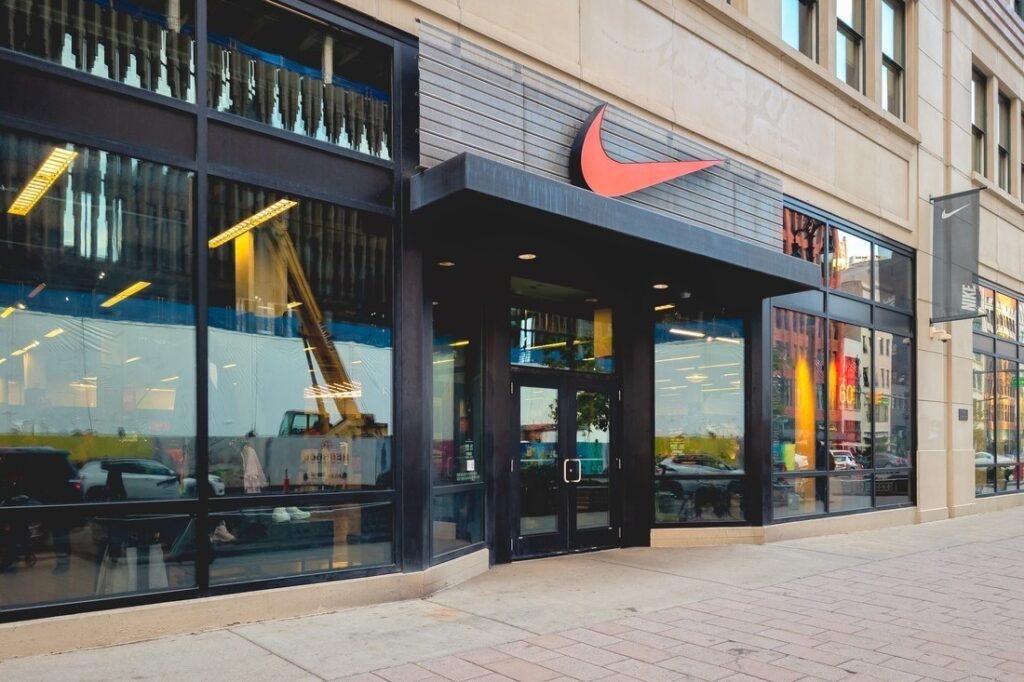
views
Quick Links
SECTIONS
- Business
- Entertainment
- Future of Work
- Health & Wellness
- Lifestyle
- Money
- Personal Development
- Professional Development
- Relationships
- SUCCESS Bestsellers
- Business
- Entertainment
- Future of Work
- Health & Wellness
- Lifestyle
- Money
- Personal Development
- Professional Development
- Relationships
- SUCCESS Bestsellers
JOIN US
- SUCCESS+
- SUCCESS Coaching
- Speakers Bureau
- SUCCESS Events
- SUCCESS Space
- Newsletter
- Daily SMS
- Subscribe
- Shop the SUCCESS Store
- SUCCESS+
- SUCCESS Coaching
- Speakers Bureau
- SUCCESS Events
- SUCCESS Space
- Newsletter
- Daily SMS
- Subscribe
- Shop the SUCCESS Store
GET IN TOUCH
CONNECT
Instagram Facebook Tiktok Linkedin Pinterest X-twitterMORE
 Get SUCCESS® Magazine PLUS 80+ Hours of Exclusive Training (& More!) to Multiply Your Earning Potential
SUBSCRIBE TODAY!
Get SUCCESS® Magazine PLUS 80+ Hours of Exclusive Training (& More!) to Multiply Your Earning Potential
SUBSCRIBE TODAY!
Save Up to 20% Before Oct. 2!
BOOKMARK Share TABLE OF CONTENTS
TABLE OF CONTENTS


A few weeks ago, Nike announced that Elliott Hill, a 36-year company veteran once passed over for the top job, would return as CEO, replacing John Donahoe, a former Bain consultant and eBay executive. Donahoe’s tenure as CEO saw Nike deviate from their traditional strengths to focus on a new direct-to-consumer strategy and an implementation of multiple waves of layoffs that decimated employee morale and stifled innovation.
The announcement reminded me of another historic announcement from 1995 when Michael Jordan—Nike’s most famous collaborator—announced his return to the Chicago Bulls after a 17-month retirement. Jordan returned to play three seasons and win three consecutive NBA championship titles, permanently cementing his status as the greatest player in the history of the NBA.
Like Jordan’s comeback inspired the Bulls, Nike anticipates Hill’s return will bring new energy and vision to return the company to its glory days. Having spent his entire working life at Nike—an impressive feat by today’s standards—Hill returns to a company facing significant headwinds. The challenge for Hill and his executive team is managing and growing a former category-leading company in a fast-evolving, complex, and uncertain world.
There have been a lot of conflicting opinions and advice on who is better-suited to lead a large organization during transitional periods in a company’s life cycle: an insider CEO who has risen through the ranks or an outsider CEO who has a broad, non-industry-specific skill set.
Donahoe’s tenure as Nike’s CEO brought new insights and fresh perspectives that helped the company navigate the challenging pandemic years. However, those changes also led to a decline in market share and weakened Nike’s brand identity in the highly competitive athletic apparel and footwear industries. With recent new challenges coupled with Nike’s distinctive culture, which might have been difficult for an outsider to fully grasp and navigate, the company joins a growing trend of companies preferring experienced leaders with deep organizational knowledge and industry expertise to help right the ship.
Nike’s decision to appoint Hill to the top job illustrates the exceptional value of institutional knowledge in leadership. Having grown up in the company, he has a comprehensive understanding of every function of the business.
This depth and breadth of experience give him unique insights into managing the complex internal dynamics an outsider CEO might struggle to navigate. It is a necessary tool to rebuild trust with the employees, boost morale and drive performance improvements. For example, Hill’s deep understanding of Nike’s sports-marketing history could help the company refocus on athlete-centered storytelling.
“The benefit of elevating an insider is they have all that institutional knowledge. They’ve been there, they’ve done that, they’ve seen what worked and what didn’t,” says Rhonda Y. Williams, leadership expert and founder of Above the Grind Leadership. “You don’t have to spend the first six months ramping up and gaining knowledge because you already have it. So, hopefully the upward trajectory is very fast.”
Bringing experienced leaders to run the company in trying times is not new in corporate America. Recently, Under Armour, one of Nike’s competitors, rehired their former CEO to guide them through challenging times.
A study published by the Journal of Management notes that CEOs with in-depth firm knowledge and versatile management experience are better suited to pursuing growth opportunities and can potentially improve company performance. Nike’s board is making a strategic bet that their gamble on Hill will pay off significantly.
By seeking diverse roles and experiences within your company, you gain a depth and breadth of experiences that make you an indispensable leader who can navigate complex challenges effectively.
I remember getting my first pair of Nike shoes. They were stunning turquoise-and-black beauties that seemed like a work of art. Back then, every kid who owned Nike gear felt like a member of an exclusive club of champions, just like their heroes Andre Agassi, Tiger Woods, Serena Williams and many others who proudly sported the iconic swoosh. From Michael Jordan’s gravity-defying dunks to Serena Williams’ powerful serves, these champions, in their iconic and historical moments of celebration, captured the essence of Nike’s secret sauce—athleticism, winning and the spirit of good sportsmanship.
Today, it feels like Nike has drifted away from their secret sauce. “You always want to learn from the past, but you never want to live there,” says Mark Miller, leadership expert and co-founder of Lead Every Day. “[The new CEO of Nike] has got to figure out what future does he want [for the company] and what future does he want for the culture? Perhaps it’s a return to the cultural roots, but there could also be enhancements or additions or embellishments.”
Nike is at an inflection point in its history. In the early years, they were an underdog company trying to carve a niche for themselves in athletics. They eventually broke through by pushing the envelope and using innovative marketing to showcase emerging talent and becoming the home of champions. As the company looks to the future, it must create a new identity that honors its legacy while innovating to recapture the magic that once made kids all over the world feel like they could become champions if they owned a pair of Nikes.
As societal norms evolve, people want to know where their beloved brands stand on social, cultural and political issues. Some customers appreciate Nike’s current bold stances, but many feel alienated.
Successfully navigating the company’s internal cultural dynamics and public perception will be a significant challenge for the new CEO and his leadership team. They must rebuild the culture and craft new messaging that acknowledges their historic legacy in sports and unifies and inspires their diverse customer base.
“You can’t keep just pumping out old styles and Air Jordan 1s because, at some point, it doesn’t become special anymore,” says Aaron Rapf, Founder of Advantage Sports Marketing Group and former Nike sports marketing executive. “I don’t think [other companies] have the experience to innovate the way Nike can…But if Nike starts to innovate in [their heritage categories, like running and basketball], it’s going to crush everybody.”
Innovating as a large company in a fast-changing environment is a universal dilemma. When a company becomes so big and well-established that they’re no longer the new kid on the block, it creates a problem of complacency and stagnation. Hill and his executive team will have to refocus the company on innovation across multiple areas, including product development and operational processes. To regain its competitive edge, Nike must create an environment where employees are encouraged and empowered to take calculated risks without fear of failure.
Relying on past wins and former glory is a surefire way to become obsolete. Leaders must be willing to invest in continuous innovation, stay on top of emerging trends and changing market dynamics if they want their companies to survive and thrive. Innovation is not a one-time event, but rather an ongoing process that guarantees your company’s future success.
Photo courtesy of Mahmoud Suhail/Shutterstock

Chi Odogwu
Chi Odogwu is an AI operations consultant, ghostwriter and the founder of The Bulletproof EntrepreneurTM. He helpsbusinesses thrive in the digital age through strategic use of emerging technologies and sound financial practices.Chi writes for SUCCESS, theWall Street Journal,CNET,Bankrate,Fox Moneyand other major business publications.He can be reached viaLinkedInandBulletproofEntrepreneur.com
5473 Blair Road, Suite 100
PMB 30053
Dallas, TX 75231
Copyright © 2024 SUCCESS Magazine. All rights reserved.
Save Up to 20% Before Oct. 2!
Copyright © 2024 SUCCESS Magazine. All rights reserved.
Unlock the Latest Knowledge that Can You Help You Achieve More in Life with More Confidence
Print and Digital Options Available
Oops!
You’ve reached your limit of free
articles for this month!
(plus get access to hundreds of resources designed
to help you excel in life and business)
Please enter your username or email address. You will receive an email message to log in.
No, thanks, I’m not interested in personal growth.
Plus, get access to daily inspiration, weekly newsletters and podcasts, and occasional updates from us.
By signing up you are also added to SUCCESS® emails. You can easily unsubscribe at anytime. By clicking above, you agree to our Privacy Policy and Terms of Use.
Please enter your username or email address. You will receive an email message to log in.
Get unlimited access to SUCCESS®
(+ a bunch of extras)! Learn more.
Please enter your username or email address. You will receive an email message to log in.
The exclusive article you’re trying to view is for subscribers only.
(plus get access to hundreds of resources designed
to help you excel in life and business)
Please enter your username or email address. You will receive an email message to log in.
https://www.success.com/nike-leadership-transition-is-a-lesson-in-business/
























Comments
0 comment